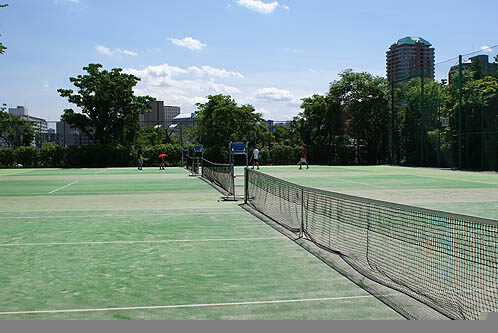Rikugien Gardens, a tranquil haven in bustling Tokyo, is a meticulously designed traditional Japanese garden in Bunkyo Ward.
This 17th-century masterpiece, created by samurai and scholar Yanagisawa Yoshiyasu, showcases the beauty of Japan’s natural landscape and its connection with poetry.
A Garden Inspired by Poetry
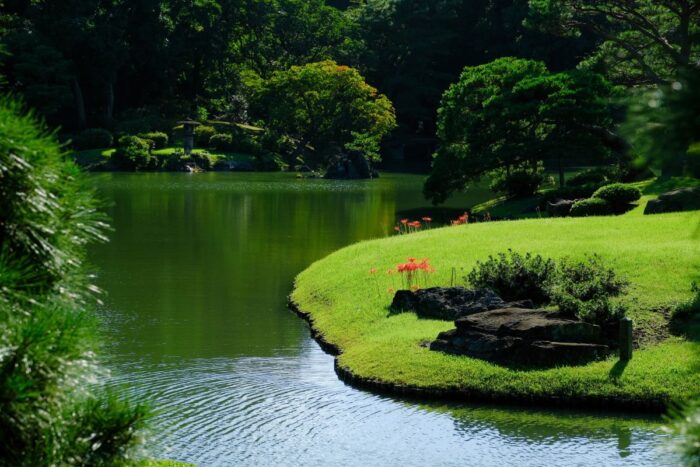
Rikugien and Waka Poetry
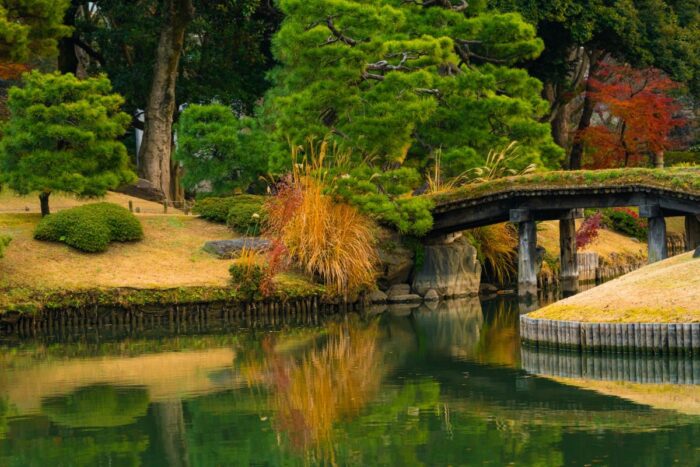
The garden’s name, “Rikugien,” is a nod to the six elements of Japanese waka poetry, a reflection of Yanagisawa Yoshiyasu’s passion for literature. The garden’s design is inspired by 88 scenes from famous poems, immersing visitors in the world of classical Japanese literature.
Tsutsuji no Chaya

Tsutsuji no Chaya, a charming teahouse nestled in Rikugien Gardens, offers a serene spot for visitors to rest and appreciate the surrounding beauty. The teahouse pays homage to the tradition of savoring tea while appreciating the delicate balance between nature and human-made structures.
The Art of Japanese Gardening
The Unique Stroll Garden Design
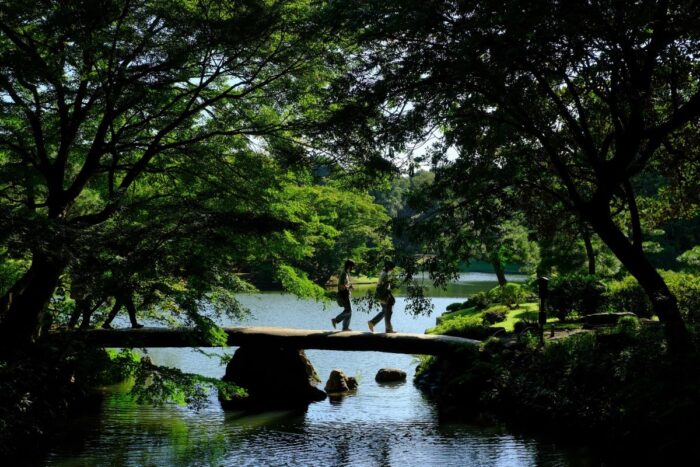
Rikugien Gardens exemplifies the stroll garden style, where visitors are guided through a series of ever-changing landscapes, symbolic of a journey through life. The intentional design elements evoke various emotions, offering a deeper appreciation of the garden’s beauty.
Togetsukyo Bridge

The Togetsukyo Bridge, a stone bridge spanning the central pond, allows visitors to enjoy breathtaking views of the garden. This bridge is named after a line from a famous waka poem, highlighting the connection between the garden’s design and classical literature.
Seasonal Beauty of Rikugien Gardens
Cherry Blossoms: A Symbol of Ephemeral Beauty

In spring, Rikugien Gardens comes alive with cherry blossoms, particularly the famous weeping cherry tree or “Shidare-zakura.” This tree, a symbol of the fleeting beauty of life, stands as a reminder of the delicate balance between the natural world and human intervention.
More: Rikugien Gardens Cherry Blossom Viewing Guide
Autumn Foliage: A Celebration of Transience

During autumn, Rikugien Gardens is adorned with vibrant hues of red, orange, and yellow as the maple trees reveal their stunning foliage. The garden’s nighttime illuminations create a dreamlike atmosphere, celebrating the transient beauty of the changing seasons.
Engaging in the Rikugien Experience
Tea Ceremony Workshops

Rikugien Gardens occasionally hosts tea ceremony workshops, allowing visitors to learn about and participate in this ancient Japanese tradition. This immersive experience further connects visitors to the garden’s rich cultural history and poetic inspirations.
Guided Tours
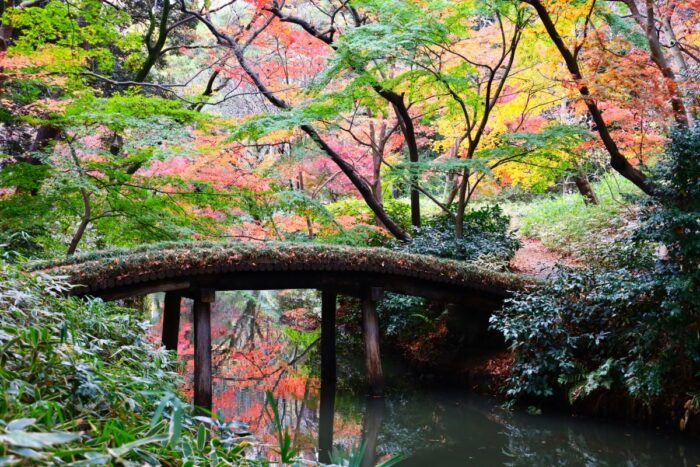
To gain a deeper understanding of the garden’s design, consider joining a guided tour. Knowledgeable guides will share insights into the garden’s history, its connection to poetry, and the symbolism behind various landscape elements.
Practical Information
Visiting Hours and Admission
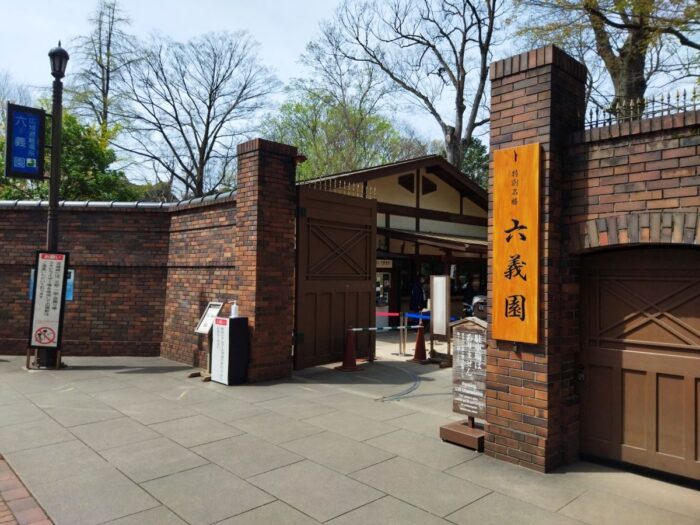
Rikugien Gardens is open year-round from 9:00 AM to 5:00 PM, with last entry at 4:30 PM. The admission fee is 300 yen for adults and free for children aged 12 and under. Note that the garden may be closed for maintenance or special events, so always check the official website before your visit.
Tips for Visiting
- Plan your visit to coincide with the cherry blossom or autumn foliage season for an unforgettable experience.
- Allocate at least 1-2 hours to fully appreciate the garden’s intricate design and poetic connections.
- Remember that the garden is a peaceful retreat, so be mindful of noise levels and respectful of the surroundings.
Access
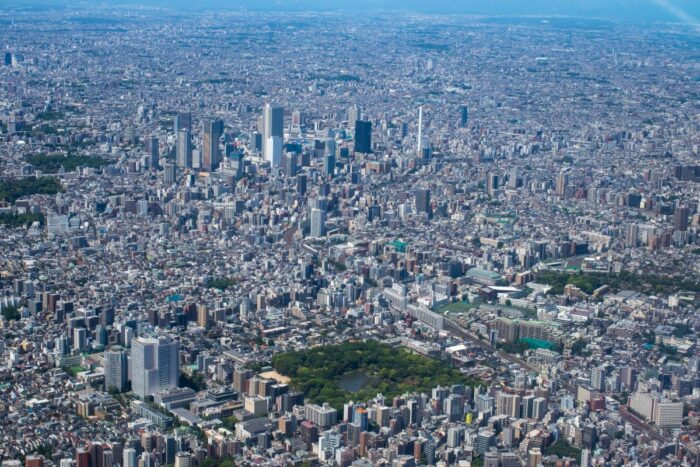
Rikugien Gardens is easily accessible via public transportation. The nearest stations are Komagome Station (JR Yamanote Line and Tokyo Metro Namboku Line) and Sengoku Station (Toei Mita Line). From either station, it’s a 7-10 minute walk to the garden entrance. Conveniently located in the city, Rikugien Gardens offers a serene escape from the bustling streets of Tokyo.
Nearby Attractions
- Kyu-Furukawa Gardens: Another beautiful garden in the vicinity, featuring both Japanese and Western-style landscapes.
- Sugamo Jizo-dori Shopping Street: A lively shopping street, often referred to as “Harajuku for the elderly,” offering a unique cultural experience and delicious local treats.
In conclusion, Rikugien Gardens is a must-visit destination for those seeking a peaceful retreat within Tokyo, offering an immersive experience that connects visitors to Japan’s rich history, poetic tradition, and the profound beauty of its natural landscape.
Visitor Information
| Key Information | Details |
|---|---|
| Name | Rikugien Gardens |
| Address | 6-16-3 Honkomagome, Bunkyo City, Tokyo, Japan |
| Nearest Station | Komagome Station (JR Yamanote Line and Tokyo Metro Namboku Line), Sengoku Station (Toei Mita Line) |
| Opening Hours | 9:00 AM to 5:00 PM (last entry at 4:30 PM); closed on December 29-31 |
| Admission Fees | 300 yen for adults, free for children aged 12 and under |
| Nearby Hotels (Splurge) | 1. The Prince Gallery Tokyo Kioicho |
| 2. The Capitol Hotel Tokyu | |
| Nearby Hotels (Mid-range) | 1. Hotel Metropolitan Tokyo Ikebukuro |
| 2. APA Hotel Sugamo Ekimae | |
| Nearby Hotels (Budget) | 1. Sakura Hotel Ikebukuro |
| 2. Hotel MyStays Ochanomizu |




